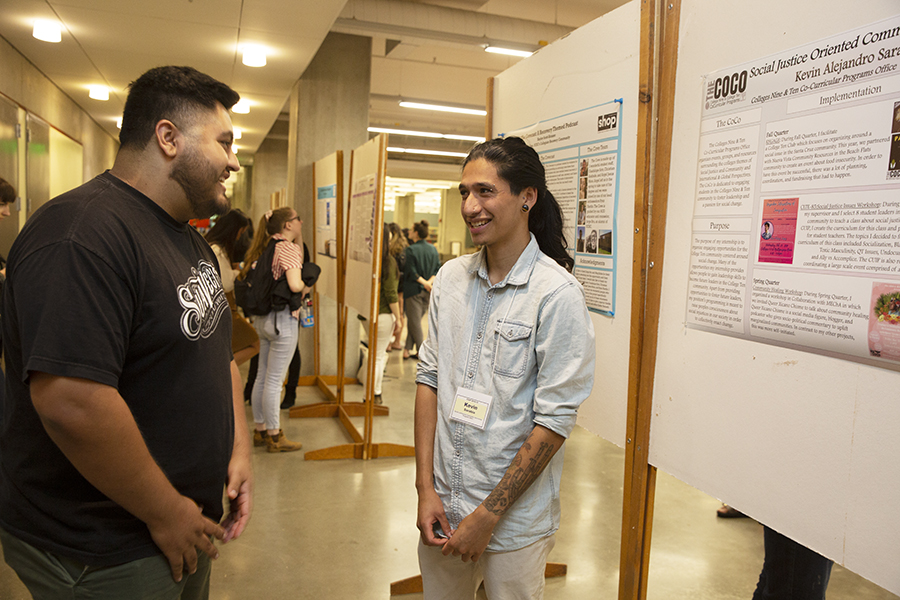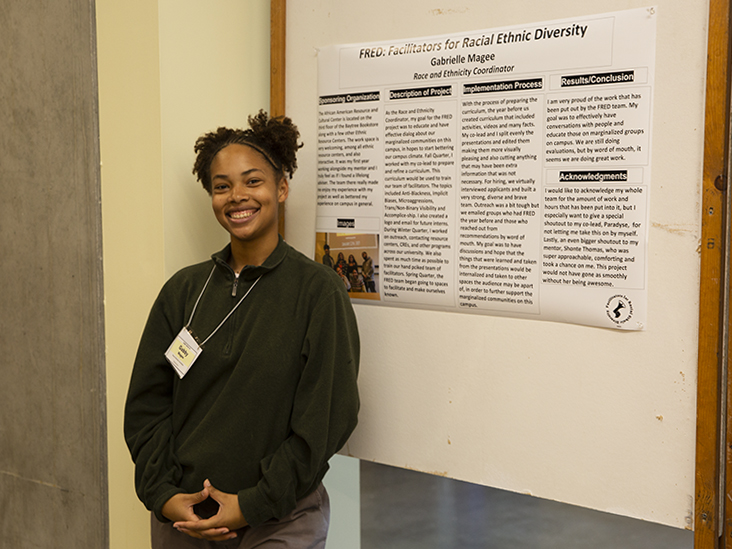Campus News
A winning combination
Chancellor’s Undergraduate Internship Program provides students with work experience while campus benefits


Culminating months of work, 50 undergraduate interns presented their projects on Monday, June 3, for the year-long Chancellor’s Undergraduate Internship Program (CUIP), which places students in roles throughout the campus.
Interns gain work experience while completing projects under the supervision of staff or faculty mentors. They attend the 2-unit seminar, Leadership and Institution Building, with the chancellor and other administrators. Interns receive an $8,000 stipend, covering the cost of their student fees for the year.
A chance to make things better
Gabrielle Magee co-led a team at the African American Resource and Cultural Center that aimed to make a more welcoming campus environment for marginalized communities. She trained a team of facilitators and convened discussions to raise awareness of topics like microaggressions and anti-blackness.“This project and the CUIP program helped me believe in the work I produce,” said Magee (Kresge ‘20, psychology). “From the feedback we received, the work we were doing was life-changing for some people.”
Through her internship with the First Generation Initiative, Christina Yu built a website for parents and guardians who have not attended college. The project included recruiting fellow first-generation students to give advice and record interviews with their own parents.
“Few resources are available for parents and guardians of first-gen students,” said Yu (College Ten ‘20, cognitive science). “The interviews give insights to parents and reassure them that their child will be OK.”
Some observers of the event noticed themselves experiencing strong reactions.
“I found looking over the posters an emotionally charged experience,” said Todd Thorpe, instructor of the leadership seminar. “These young women and men are doing such important work and are so earnest and sincere. It is very humbling to see such dedication.”
The chancellor’s legacy
Program graduates take away job skills along with accomplishments related to their UC Santa Cruz studies—advantageous experience as they make the first steps in their careers.It is the largest beneficiary of the UCSC Fund, the university’s main fund for general donations. An increase in gifts enabled the program to grow from 35 interns last year to its current size. At the poster presentation, Chancellor George R. Blumenthal announced that CUIP would continue to support 50 interns in the next school year.
As he congratulated the interns on their presentations, he noted that their projects all contributed lasting benefits to the campus.
“I think of this program as the definition of symbiosis,” said Blumenthal, who is retiring at the end of the month after 13 years as chancellor and 47 years on campus. “You benefit, and the campus benefits. It’s a win-win.”
The program has been a priority for Blumenthal, and an endowment in his name providing permanent funding was announced at his retirement celebration June 1.
To contribute, go to the George R. Blumenthal Fund for the Chancellor’s Undergraduate Internship Program on our online giving site.